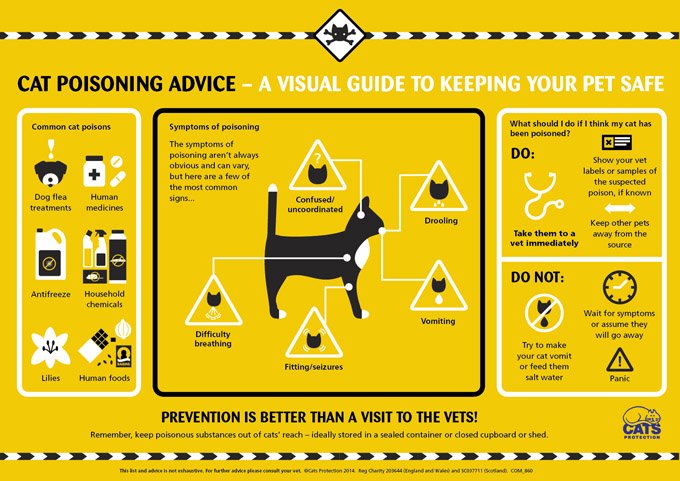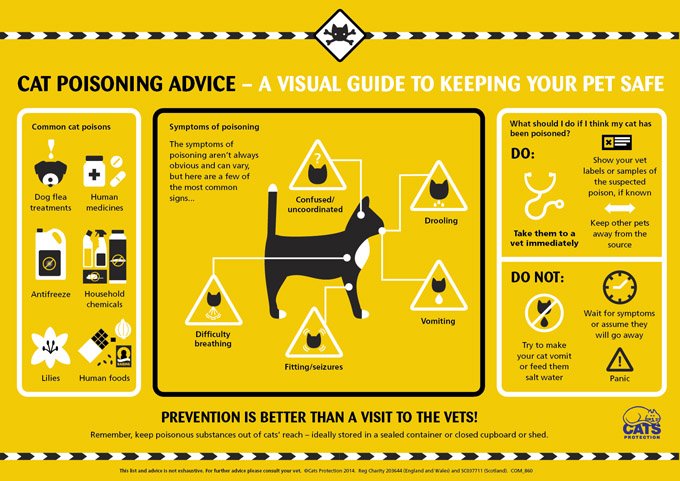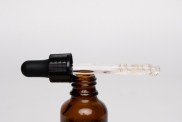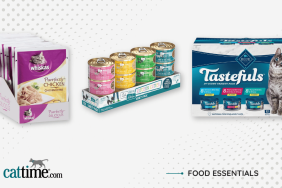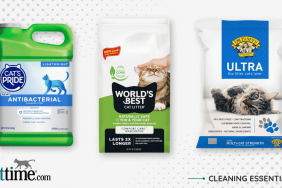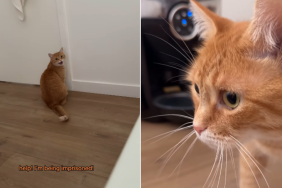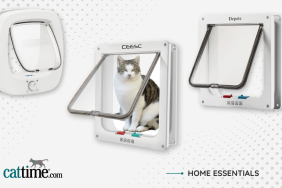Cats have a reputation for being finicky, but some of them are willing to try anything. Cantaloupe, tomato sauce, and scrambled eggs are just a few feline favorites. It’s fun to give your cat a taste of what you’re eating, especially when he seems interested in it, but certain foods or ingredients can be toxic and even deadly. The holidays are coming and there will be parties and treats and things that may not normally be out on the counter so it’s a good time to brush up on the basics and remember what foods can be toxic to or kill your cat.
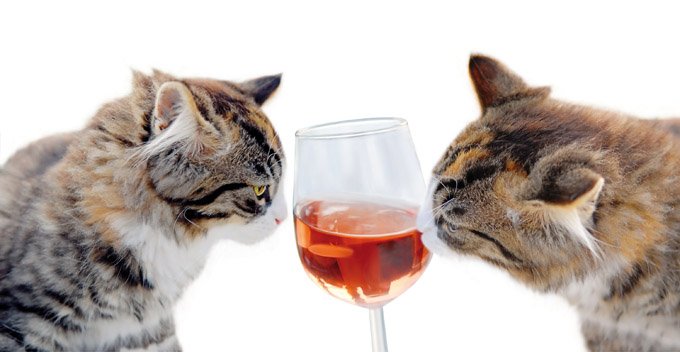
Alcohol: Tell your cat he’s not of legal drinking age if he starts sniffing around your cantaloupe-flavored cocktail. It’s never funny and always dangerous to give a cat something alcoholic — the results can be vomiting, diarrhea, in coordination, difficulty breathing, tremors, and even death.
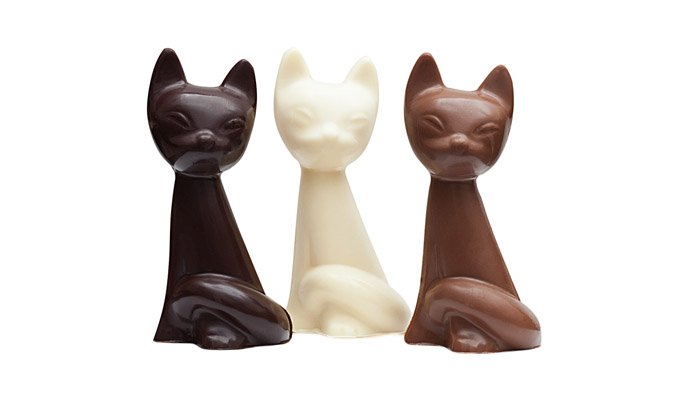
Anything containing chocolate or caffeine: Chocolate, coffee, or any caffeinated food or drink contain substances called methylxanthines that cause vomiting, diarrhea, abnormal heart rhythms, and seizures in cats if enough is ingested. Don’t share chocolate desserts or candy with your cat, and don’t let him sip out of your coffee cup. It might look cute until you have to pay the veterinary bill.
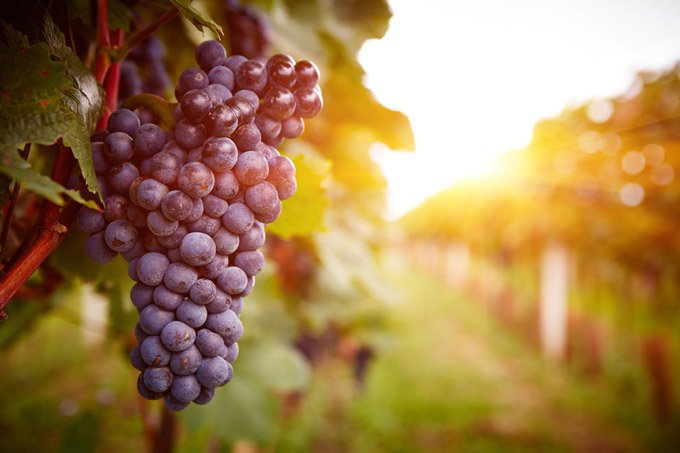
Grapes and raisins: You would think any kind of fruit would be healthy, but grapes and raisins have been known to cause kidney failure, primarily in dogs. The reason for the toxicity is unknown, as is the effect on cats, so it’s best not to experiment. If you know your cat has eaten grapes or raisins, veterinary toxicologists advise an immediate trip to the veterinarian.
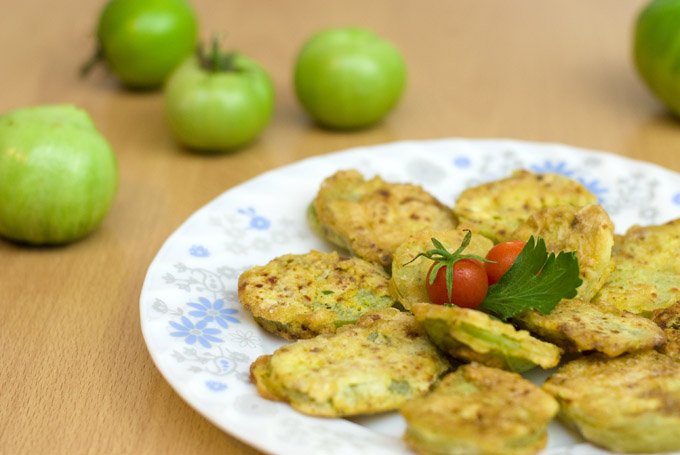
Green tomatoes and potatoes: Cats won’t typically eat unripe tomatoes or raw potatoes, but they do love to nibble on leaves and other greens. The leaves and stems of tomato and potato plants, which belong to the deadly nightshade family, are highly toxic. Never leave these plants within your cat’s reach.
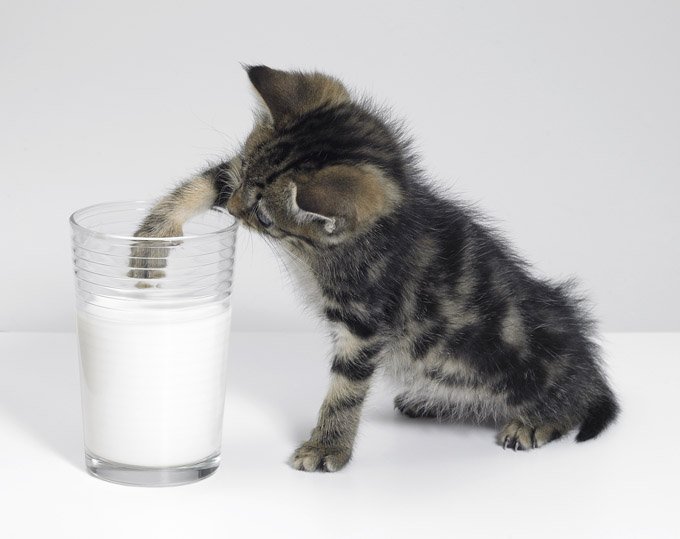
Milk: Lots of cats like to share their owners’ milk and cereal in the morning. Milk isn’t toxic to cats, but some cats are lactose-intolerant and can get an upset stomach or diarrhea from drinking it. If your cat doesn’t have a problem with it, it’s okay to let him have a little bit, or substitute a small amount of cream, which crowds out the lactose because of its high fat content.
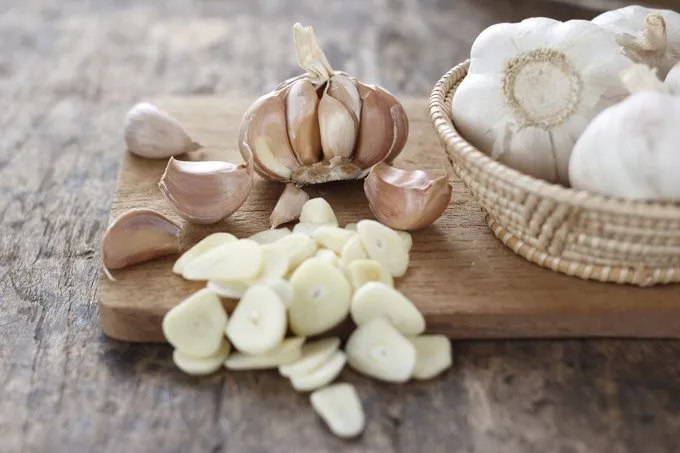
Foods containing onions or garlic: Your cat may love your marinara sauce, but if it has lots of onion, garlic or other members of the Allium family, it should be off limits to him. Cats who eat onions or garlic can develop Heinz body anemia, which occurs when a substance in those foods destroys their red blood cells. If you are giving baby food to an old or sick cat, check the label for onion powder before giving it.
Salt: Go easy on the french fries and chips. Too much salt is just as bad for cats as it is for people, causing extreme thirst or even sodium poisoning. Signs include vomiting, diarrhea, and tremors or seizures.
Foods sweetened with xylitol: Cats don’t typically have a sweet tooth, but if yours likes to share your morning muffin from the store, check the label before letting him have any. Found in many baked goods, candy and gum, xylitol can lead to hypoglycemia and liver failure.
What are some healthy foods you can share with your cat? Offer him a bit of apple, a slice of cantaloupe, plain popcorn, or small bites of meat with fat and gristle trimmed off. In small amounts, these types of “people food” are just fine for your cat.
